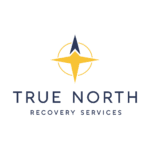Recovering from methamphetamine addiction is a formidable challenge, and many individuals wonder if it’s possible to achieve sobriety without external assistance. While self-directed recovery is conceivable, understanding the complexities of meth addiction and the available support systems can significantly enhance the likelihood of a successful and lasting recovery.
Understanding Methamphetamine Addiction
Methamphetamine, commonly known as meth, is a powerful central nervous system stimulant that can lead to severe physical and psychological dependence. Chronic use may result in detrimental effects on the brain, cardiovascular system, and overall mental health. Recognizing the profound impact of meth addiction is crucial when considering recovery options.
The Challenges of Quitting Meth Without Professional Help
Attempting to quit meth independently presents several challenges:
- Intense Cravings and Withdrawal Symptoms: Individuals may experience strong cravings, fatigue, depression, and increased appetite during withdrawal, making relapse more likely.
- Psychological Dependence: Meth use often becomes intertwined with daily routines and coping mechanisms, necessitating significant behavioral changes.
- High Relapse Rates: Studies indicate that without formal treatment, the success rate of maintaining sobriety after three years is approximately 5%.
Self-Help Strategies for Meth Recovery
For those determined to pursue recovery without professional intervention, the following self-help strategies may be beneficial:
- Establish a Support Network: Engage with friends, family, or support groups who understand your journey and can offer encouragement.
- Develop Healthy Routines: Incorporate regular exercise, balanced nutrition, and adequate sleep to support overall well-being.
- Identify Triggers: Recognize and avoid situations or individuals that may prompt meth use.
- Set Realistic Goals: Break down the recovery process into manageable steps to maintain motivation and track progress.
- Manage Stress: Practice relaxation techniques such as meditation, deep breathing exercises, or yoga to cope with stress without resorting to substance use.
The Benefits of Professional Treatment
While self-directed recovery is possible, professional treatment offers several advantages:
- Medical Supervision: Healthcare professionals can monitor and manage withdrawal symptoms, ensuring safety and comfort during detoxification.
- Structured Programs: Treatment plans tailored to individual needs provide a clear roadmap for recovery.
- Therapeutic Support: Access to counseling and therapy helps address underlying issues contributing to addiction.
- Skill Development: Learn coping mechanisms and life skills to maintain sobriety and prevent relapse.
How True North Recovery Services Can Support Your Journey
At True North Recovery Services, we understand the complexities of methamphetamine addiction and the courage it takes to seek help. Our compassionate team offers comprehensive outpatient addiction treatment, focusing on opioid and alcohol addiction, with a foundation built on kindness, respect, and unwavering support. We recognize that recovery is a deeply personal journey, and our holistic approach encourages clients to explore new pathways that support their unique recovery process. By providing high-quality medical care and recovery support services, we aim to facilitate our clients’ journey to self-discovery, leading to a more fulfilling and sober life.
While it is possible to quit meth without professional help, the journey is fraught with challenges that can be mitigated through structured support and treatment. Whether choosing self-help strategies or seeking professional assistance, the commitment to recovery is a courageous and commendable step toward reclaiming your life.


